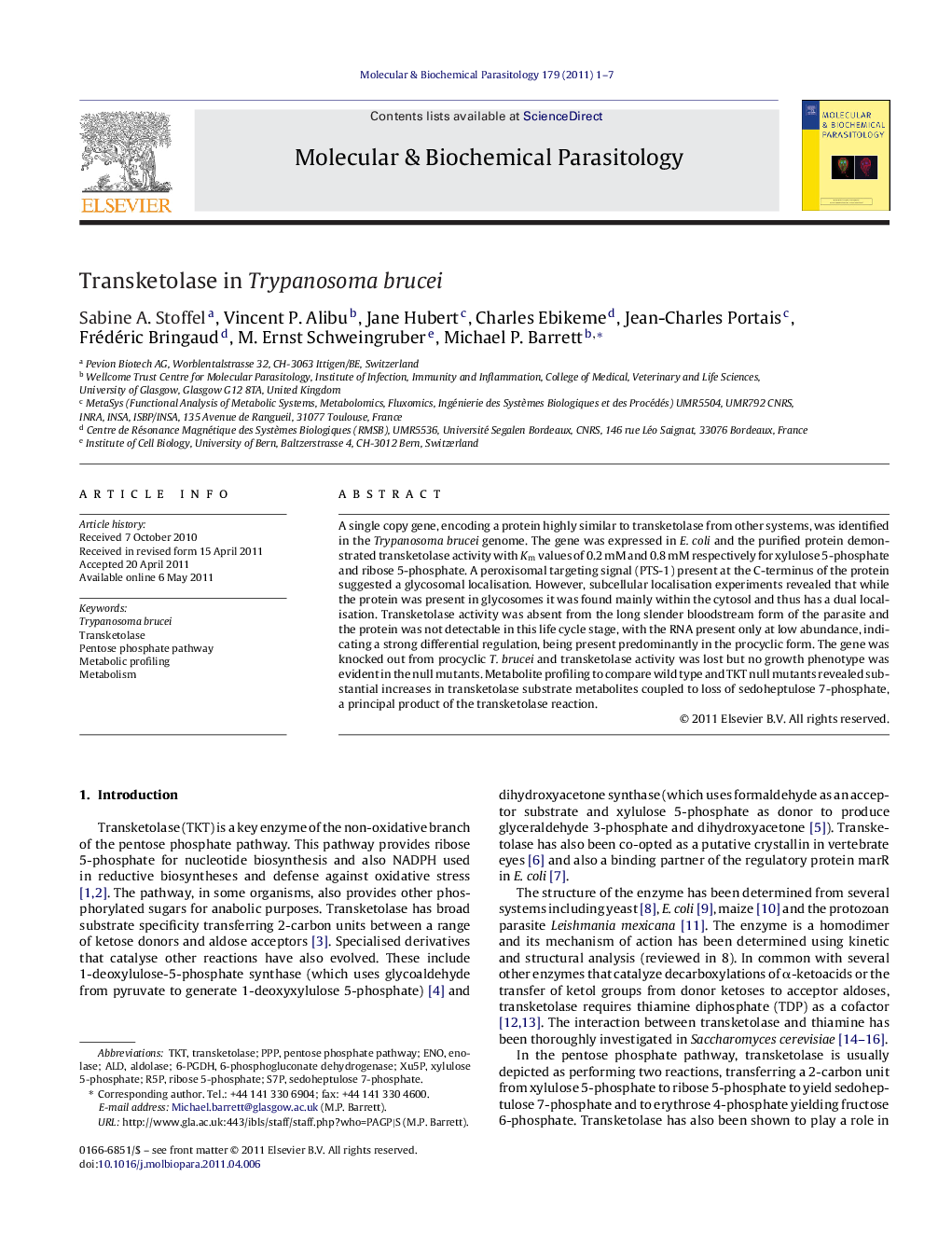| Article ID | Journal | Published Year | Pages | File Type |
|---|---|---|---|---|
| 5915648 | Molecular and Biochemical Parasitology | 2011 | 7 Pages |
A single copy gene, encoding a protein highly similar to transketolase from other systems, was identified in the Trypanosoma brucei genome. The gene was expressed in E. coli and the purified protein demonstrated transketolase activity with Km values of 0.2Â mM and 0.8Â mM respectively for xylulose 5-phosphate and ribose 5-phosphate. A peroxisomal targeting signal (PTS-1) present at the C-terminus of the protein suggested a glycosomal localisation. However, subcellular localisation experiments revealed that while the protein was present in glycosomes it was found mainly within the cytosol and thus has a dual localisation. Transketolase activity was absent from the long slender bloodstream form of the parasite and the protein was not detectable in this life cycle stage, with the RNA present only at low abundance, indicating a strong differential regulation, being present predominantly in the procyclic form. The gene was knocked out from procyclic T. brucei and transketolase activity was lost but no growth phenotype was evident in the null mutants. Metabolite profiling to compare wild type and TKT null mutants revealed substantial increases in transketolase substrate metabolites coupled to loss of sedoheptulose 7-phosphate, a principal product of the transketolase reaction.
Graphical abstractDownload high-res image (25KB)Download full-size imageHighlights⺠A differentially expressed transketolase gene was cloned from Trypanosoma brucei. ⺠The recombinant protein was characterised. ⺠The tbtkt gene was both knocked out from and over-expressed in procyclic form T. brucei. ⺠Alterations to the metabolome confirmed transketolase's role in carbohydrate metabolism.
